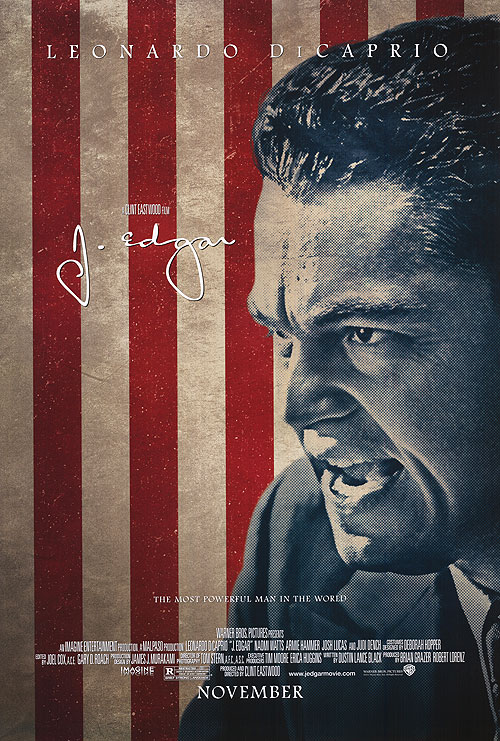J. Edgar fails to keep viewers’ attention
Clint Eastwood’s newest film, J. Edgar earns 3 out of 5 stars for its distracting costumes and long storyline.
November 17, 2011
Who was the most famous man of the 20th century? It’s a question posed by the title character in Clint Eastwood’s latest film “J. Edgar.” Starring Leonardo DiCaprio in yet another mega role, the movie follows the life and times of J. Edgar Hoover as he struggles to establish and hold together the FBI.
Slow storyline
From the stark cinematography to the gentle piano chords, everything about “J. Edgar” feels like a classic Eastwood film. Generally, his films are known for deliberate pacing and contemplative moments and “J. Edgar” is no exception. In other words, it’s slow.
That’s not to take away from the convincing performances that drive the movie, and the subject matter is fascinating to be sure. “J. Edgar” manages to stay interesting by using flashbacks well and covering a myriad of topics.
The film excels early while explaining the origins of the bureau, but starts to fizzle late with tedious scenes of Hoover’s last days that drag a bit too long. Jumping back and forth between the tumultuous 1960s and the storied past of the FBI through previous decades, the film follows the narrative of the elderly Hoover as he dictates his autobiography to a series of young typists. In flashbacks, we see Hoover interact with all the biggest names in American history — everyone from Charles Lindbergh to Shirley Temple. It’s the early scenes that reveal the most about Hoover’s nature and it’s fascinating to see the young federal agent in action.
Addresses controversies head on
Much has been said on the controversies surrounding Hoover’s life and “J. Edgar” does not shy away from the issues. We see Hoover aggressively wiretapping his enemies and political rivals. He enjoys blackmailing every power player of the mid-20th century from FDR to JFK. Perhaps the most provocative episode in the film involves a compromising recording of Martin Luther King Jr. on the eve of his acceptance of the Nobel Peace Prize.
Intimate details of Hoover’s personal life are on full display, including his close dependency on his mother, played with tactful restraint by the great Judi Dench. Indeed, Hoover is very attached to his mother, and apparently her jewelry and clothing in a scene are eerily reminiscent of Norman Bates in “Psycho.”
Transvestite tendencies aside, a great deal of the film is dedicated to the loving relationship between Hoover and close friend and confidant Clyde Tolson (Armie Hammer). Their homosexual leanings are addressed gradually and with great delicacy, only coming to a head in a quick but heated tussle of unrequited fury between the boys. It’s not a stretch to call “J. Edgar” a tender love story between two men as they struggle with their own feelings and the pressures of society. Hoover also shares a special relationship with his personal secretary Helen Gandy (Naomi Watts), his would be fiancé turned partner in state secrets.
Solid performance from DiCaprio
DiCaprio has become one of the biggest names in serious dramatic acting. Over the years he has made a complete transformation from teen heartthrob to established veteran. Tackling the role of Hoover is a challenge taken on by many actors in past films. What makes DiCaprio’s portrayal unique is that he’s playing the young Hoover and the old Hoover simultaneously. He brings tremendous energy to the role as he rises through the ranks of the Justice Department, while being convincing as the same man at the twilight of his career.
The weight that DiCaprio put on for this role is impressive alone and sends credence to the portrayal. The most glaring feature of the film is the makeup. It seems like they just caked layer upon layer on DiCaprio’s head to somewhat distracting proportions for Hoover. The supporting cast fares even worse with their elderly makeup looking downright grotesque.
Ultimately, the film goes to great lengths to explore the human side of such a well known and enigmatic icon, but keeps coming up short by not fully developing the characters and their relationships. If only the pacing was just a little tighter there could be more quality time for the actors to play with. Still, “J. Edgar” comes very close to succeeding as an engaging biopic of a larger than life figure, but the subject just may be too large to tackle for any one filmmaker.







